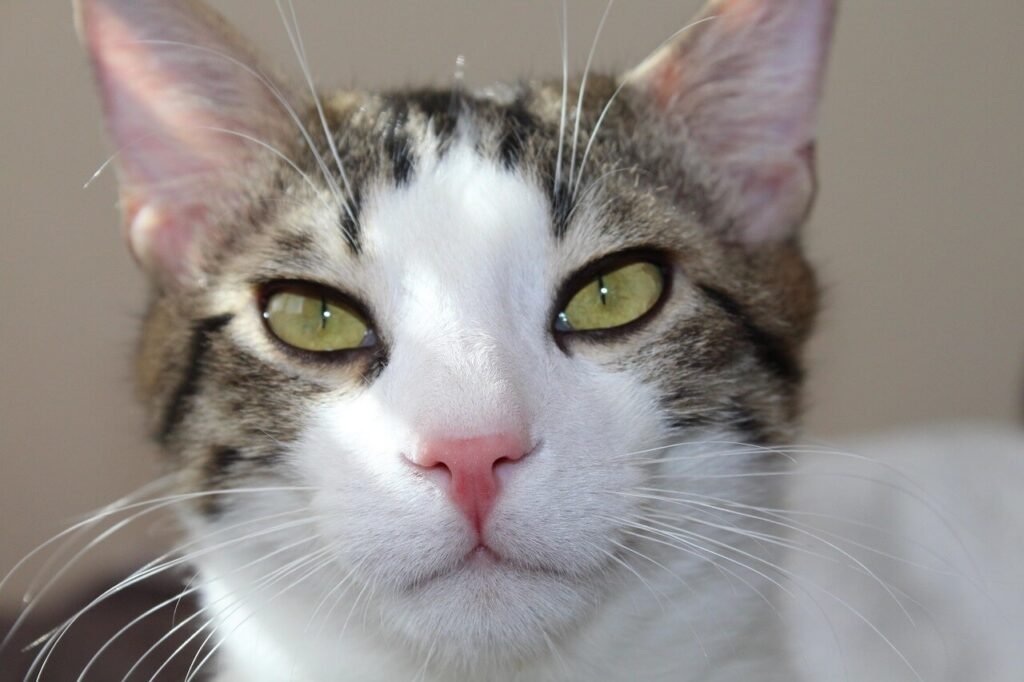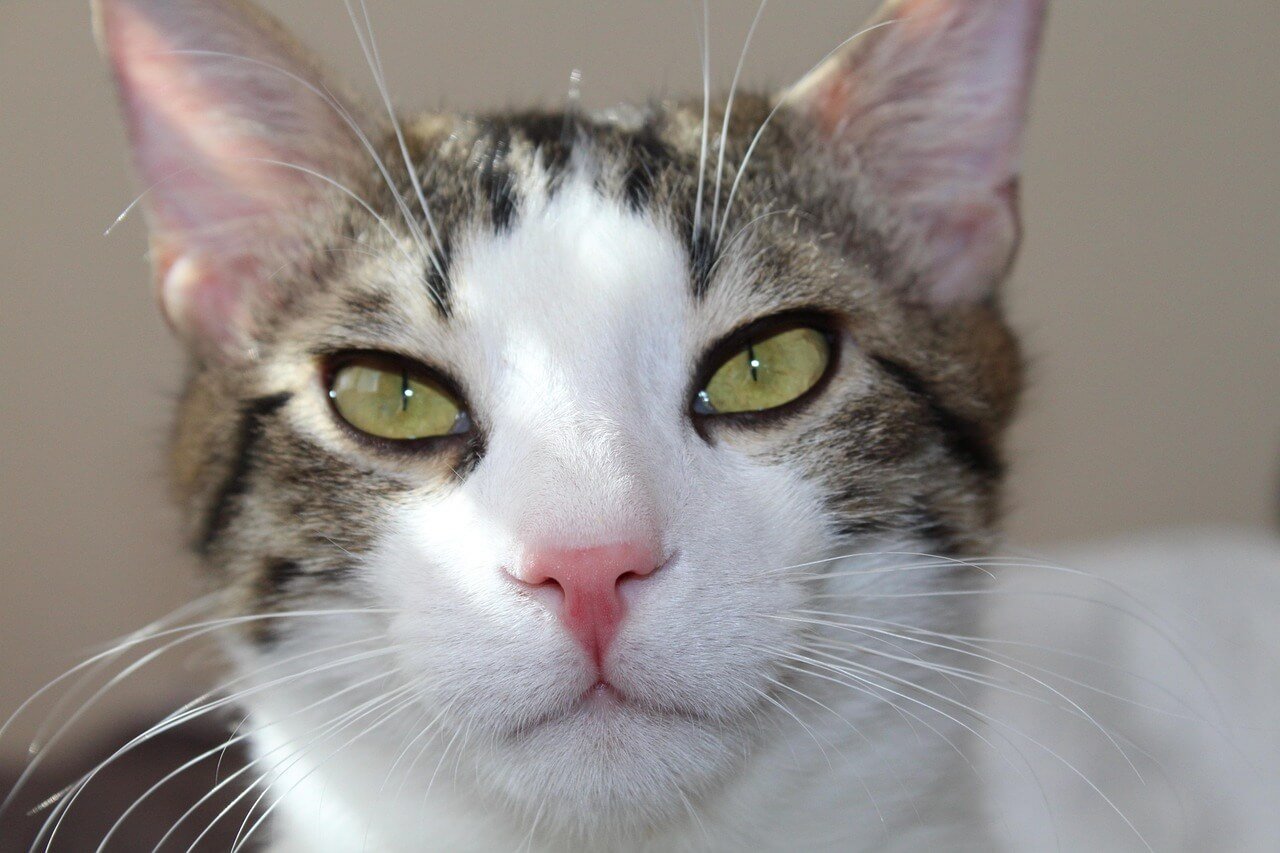Why Is My Cat Scratching the Window?
If you’ve ever caught your cat scratching at the window, you’ve probably wondered what’s going on in their curious little mind. Is it boredom, curiosity, or something else entirely? Cats are naturally inquisitive creatures, and their behavior often reflects their instincts, emotions, or environment. Window scratching is a common yet intriguing habit that can have multiple explanations, from territorial marking to fascination with the outside world. In this blog post, we’ll explore the reasons behind this behavior, how to address it, and ways to ensure your feline friend stays happy and engaged. Let’s dive into the mystery of why cats scratch windows and uncover what you can do about it.
Common Reasons Why Cats Scratch Windows
Cats scratch windows for a variety of reasons, each tied to their instincts, needs, or surroundings. Understanding these motivations can help you better interpret your cat’s actions and respond appropriately.
Curiosity About the Outside World:
Cats are natural hunters, and seeing birds, insects, or other animals outside the window can trigger their predatory instincts, leading them to paw at the glass.Territorial Marking:
Scratching surfaces, including windows, allows cats to leave both visual marks and scent signals through glands in their paws, asserting their territory.Seeking Attention:
If your cat feels neglected, they may scratch the window as a way to get your attention and engage with you.Boredom or Lack of Stimulation:
Without enough mental or physical stimulation, cats may resort to repetitive behaviors like window scratching to entertain themselves.Reflection Confusion:
Cats sometimes mistake their reflection in the window for another animal, prompting them to scratch or paw at the glass out of confusion or aggression.
By identifying the underlying reason, you can take steps to redirect or address the behavior effectively.
How to Redirect Your Cat’s Window Scratching Behavior
Once you understand why your cat is scratching the window, it’s time to find ways to redirect their energy toward more appropriate activities. Here are some practical strategies to try.
Provide Alternative Scratching Surfaces:
Place scratching posts or pads near the window to give your cat an acceptable outlet for their scratching instincts.Use Window Perches or Bird Feeders:
Install a bird feeder outside the window or add a cozy perch so your cat can safely observe the outdoors without feeling the need to scratch.Engage in Interactive Play:
Spend quality time playing with your cat using toys that mimic prey, such as feather wands or laser pointers, to satisfy their hunting instincts.Block Reflective Surfaces:
Use curtains, blinds, or anti-reflective film to reduce reflections that might confuse or frustrate your cat.Offer Mental Stimulation:
Puzzle feeders, treat-dispensing toys, and new playthings can keep your cat entertained and distract them from window scratching.
With consistent effort, these solutions can help curb unwanted scratching while keeping your cat happy and engaged.
Check this guide 👉Why Do Cat Scratches Itch? Best 7 Expert Tips!
Check this guide 👉Why is My Cat Scratching the Wall? Best 7 Health Tips!

Reasons for Window Scratching | Solutions to Address the Behavior |
|---|---|
Curiosity about outdoor activity | Add a bird feeder or window perch |
Territorial marking | Provide scratching posts near the area |
Boredom or lack of stimulation | Introduce interactive toys and puzzles |
Reflection confusion | Block reflections with curtains/film |
Seeking attention | Spend more one-on-one time with your cat |
Signs Your Cat’s Window Scratching May Indicate Stress
While window scratching is often harmless, it can sometimes signal underlying stress or anxiety in your cat. Recognizing these signs helps you address potential issues before they escalate.
Excessive Scratching Frequency:
If your cat scratches the window constantly throughout the day, it may indicate heightened agitation or frustration.Changes in Appetite or Sleep Patterns:
Stress-related behaviors often accompany shifts in eating habits or sleep routines. Monitor for any deviations from the norm.Increased Vocalization:
Cats may meow excessively when stressed, especially if they’re trying to communicate their discomfort.Aggression Toward Other Pets or People:
Frustration from window scratching can lead to redirected aggression, where your cat lashes out at those around them.Over-Grooming or Hiding:
Excessive licking or withdrawal from social interaction can be signs of stress triggered by environmental factors.
If you notice these signs, consider consulting a veterinarian or animal behaviorist to identify and alleviate the root cause of your cat’s distress.
Preventing Damage While Managing Window Scratching
If your cat’s scratching is causing damage to your windowsills or glass, there are simple measures you can take to protect your home while addressing the behavior.
Apply Protective Films:
Use scratch-resistant films on your windows to prevent scratches and maintain visibility.Cover the Sill with Fabric or Mats:
Place soft fabric or non-slip mats on the windowsill to cushion it from scratches and dirt.Deter with Scents:
Cats dislike certain scents, such as citrus or lavender. Spraying diluted essential oils (safe for pets) near the window can discourage scratching.Install Physical Barriers:
Use baby gates or barriers to limit access to problematic areas temporarily until the behavior improves.Regular Cleaning and Maintenance:
Keep the window area clean and free of smudges, as visible marks might encourage further scratching attempts.
These preventative measures ensure your home remains intact while you work on modifying your cat’s behavior.
Environmental Enrichment Ideas
Keeping your cat mentally and physically stimulated is key to reducing unwanted behaviors like window scratching. These enrichment ideas can help channel your cat’s energy into healthier activities.
Interactive Toys:
Toys that move or make noise can captivate your cat’s attention and fulfill their hunting instincts.Cat Trees and Climbing Structures:
Providing vertical spaces encourages climbing and exploration, reducing the urge to scratch flat surfaces like windows.Rotating Toys Regularly:
Introducing new toys periodically keeps your cat engaged and prevents boredom.DIY Obstacle Courses:
Create a mini obstacle course using household items like boxes or tunnels to spark curiosity and exercise.Scheduled Playtime:
Set aside dedicated play sessions daily to strengthen your bond and tire your cat out constructively.
Environmental enrichment not only reduces problem behaviors but also enhances your cat’s overall well-being.
How Weather Affects Window Scratching
Weather changes can influence your cat’s behavior, including their tendency to scratch windows. Understanding seasonal patterns helps you anticipate and manage their actions.
Springtime Activity Spikes:
Longer daylight hours and increased wildlife activity during spring can heighten your cat’s interest in the outdoors.Winter Restlessness:
Colder weather and fewer outdoor stimuli may lead to pent-up energy, prompting more indoor behaviors like window scratching.Stormy Weather Anxiety:
Thunderstorms or strong winds might agitate sensitive cats, causing them to seek comfort by interacting with familiar objects like windows.Temperature Shifts:
Sudden temperature changes can affect your cat’s mood, making them more prone to restless or repetitive behaviors.Seasonal Bird Migration:
During migration seasons, increased bird activity near windows can intensify your cat’s desire to scratch and watch.
Being mindful of weather-related triggers allows you to adapt your strategies accordingly and keep your cat calm.
Signs Your Cat Needs More Attention
Sometimes, window scratching stems from a deeper need for companionship or engagement. These signs indicate that your cat might benefit from additional attention.
Following You Around Constantly:
If your cat shadows you everywhere, they may be seeking more interaction and affection.Demanding Food or Treats Frequently:
Overeating or begging for food can be a cry for attention rather than hunger.Excessive Meowing or Vocalization:
Persistent vocalizations often signal loneliness or a desire for connection.Pawing at Doors or Furniture:
This behavior suggests restlessness or frustration due to unmet needs.Sleeping Less Than Usual:
Changes in sleep patterns can reflect heightened anxiety or boredom requiring your intervention.
Addressing these signs promptly fosters a stronger bond and ensures your cat feels loved and secure.
Frequently Asked Questions About Cats Scratching Windows
Is window scratching harmful to my cat?
Generally, no—but excessive scratching could indicate stress or boredom that needs addressing.
Can I train my cat to stop scratching the window?
Yes, with patience and consistency, you can redirect their behavior using positive reinforcement techniques.
What if my cat scratches because of reflections?
Blocking reflections with curtains or anti-reflective film can eliminate this source of confusion.
Should I punish my cat for scratching the window?
No, punishment can increase stress and worsen the behavior. Focus on redirection instead.
How long will it take to change my cat’s behavior?
Every cat is different, but consistent efforts over weeks or months usually yield noticeable improvements.
Understanding and Addressing Your Cat’s Window Scratching
Cats scratch windows for a variety of reasons, ranging from curiosity and territorial instincts to boredom or stress. By observing your cat’s behavior and implementing practical solutions, you can create a harmonious environment that satisfies their needs while protecting your home. Whether it’s providing alternative outlets for their energy, enriching their surroundings, or seeking professional advice, there are many ways to support your furry companion. Remember, patience and empathy go a long way in nurturing a happy, well-adjusted cat. With the right approach, you can turn window scratching into an opportunity for growth and bonding with your beloved pet.
Dog Tapeworm Life Cycle: Best 7 Expert Tips! – Learn how tapeworms infect dogs, spot symptoms, and break the cycle with expert prevention strategies.
Anxious Cat Body Language: Best 7 Expert Tips! – Learn to spot signs of stress, understand triggers, and help your cat feel safe and relaxed.
Anxious Dog Body Language: Best 7 Expert Tips! – Learn to spot signs of anxiety, respond effectively, and help your dog feel safe and secure.
Is Breeding Dogs Bad? Best 7 Expert Tips! – Explore the ethics, benefits, and risks of dog breeding to make informed decisions for a better future.





